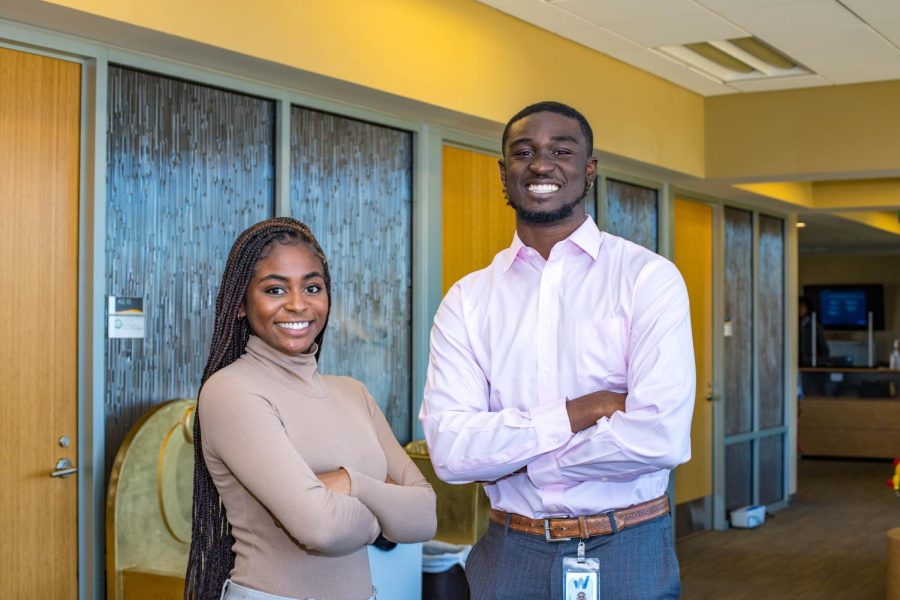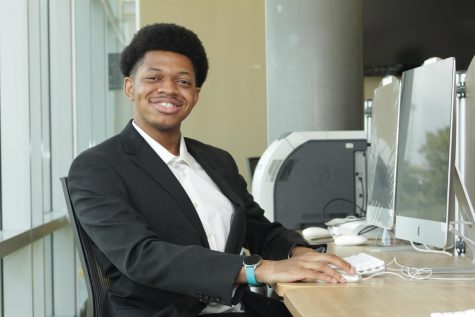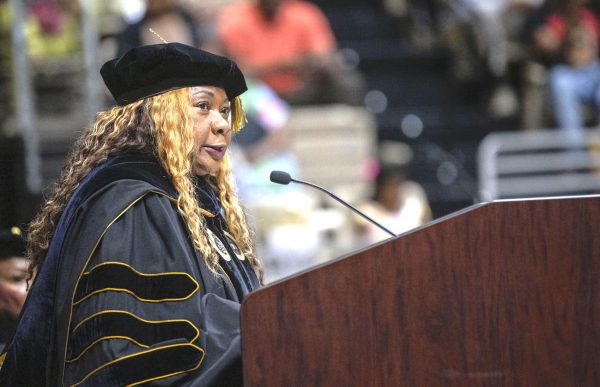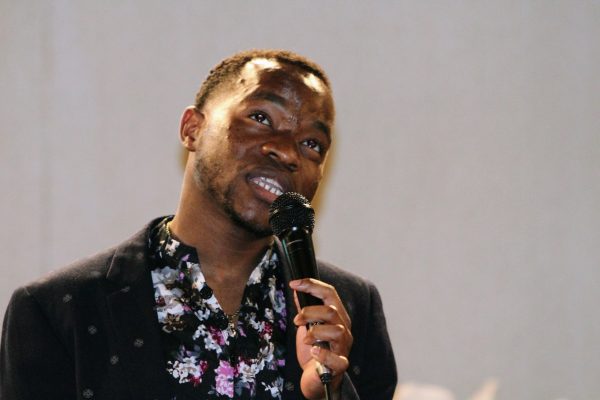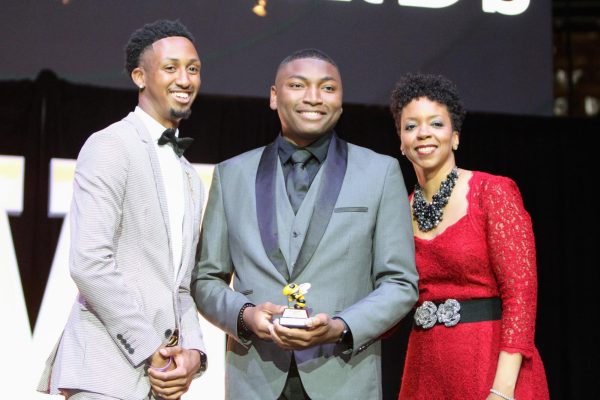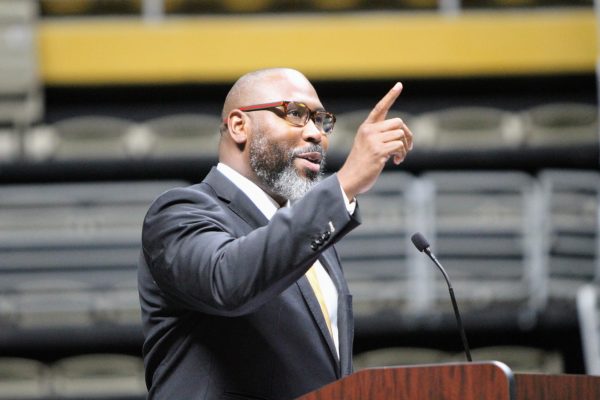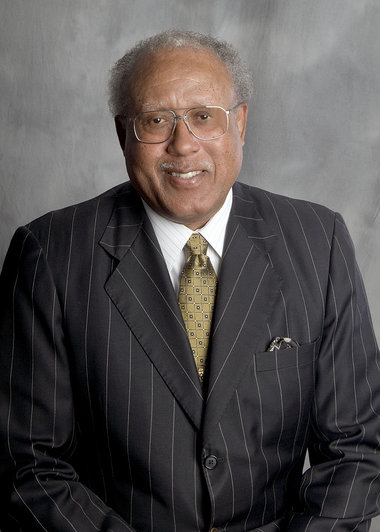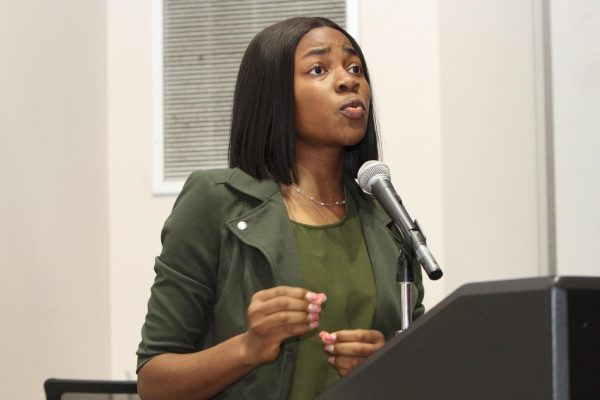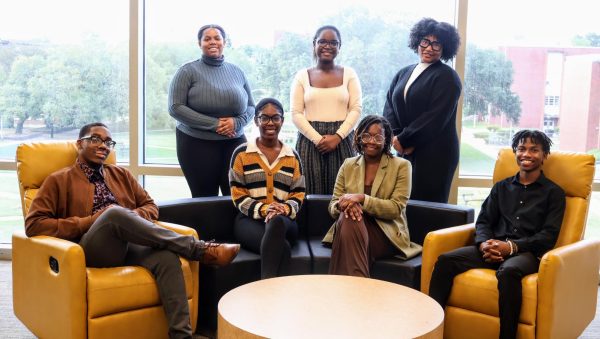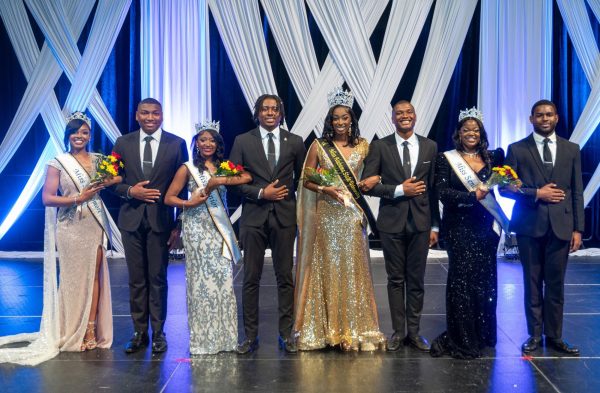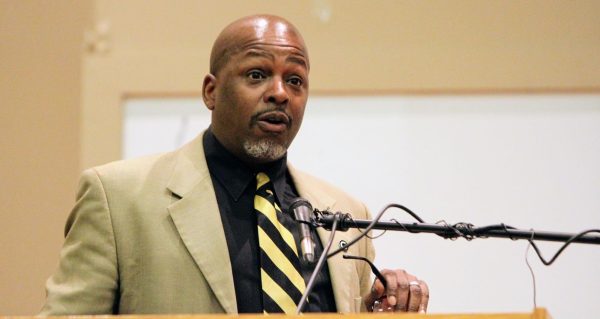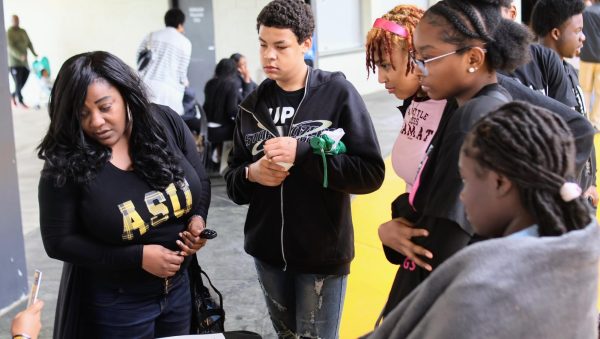Alabama HBCU Co-Op Program selects two students out of seven statewide
Camille Zanders and Juene Franklin II are the two students that were selected from Alabama State University to participate in the state of Alabama Historically Black Colleges and Universities Co-Op Program. They were selected from a field of seven students
January 29, 2022
The slogan “It’s a great time to be a Hornet,” reigns especially true for two Alabama State University students who were able to sting right through the Alabama HBCU Co-Op Program competition, and be selected statewide, for internships, with only seven slots available.
Juene Knoll Franklin II, a senior finance major from Houston, Texas, is employed part-time by Warren Averett Accounting Firm, and Camille Zanders, a sophomore finance major from Tallahassee, Florida, is employed part-time at the Alabama Department of Archives and History.
The Alabama HBCU Co-Op Program establishes a pipeline for diverse talent between Alabama’s HBCUs and employers. Both Franklin and Zanders will have the opportunity to receive invaluable hands-on work experience in both the public and private sectors.
Zanders began her internship with the Alabama Department of Archives and History on Jan. 13. However, how she obtained the internship speaks to her character.
“So actually, my freshman year, I applied for this same internship and didn’t get in,” she said. “And then, at the beginning of my sophomore year of college, I saw a volunteer opportunity open at the Alabama Department of Archives and History, and I took it because I had the perfect availability during Fridays to help out. So I volunteered there all of fall semester, four hours every Friday. And I guess the people there knew I was a familiar face. By that point, they started to kind of see who I was and see how I communicated and interacted with everybody. And when the internship opportunity opened again, they actually reached out and asked me to apply for it. And I got in!”
As a discovery intern at the Alabama Department of Archives and History, Zanders is responsible for a variety of things, lending a helping hand at different departments such as the collections committee, the registrar, the digital assets, and the research room with the archivists.
According to Zanders, attention to detail is extremely important working with transcriptions and documentation in the digital assets department.
“I’ve worked on transcribing old diary entries and Supreme Court documents and newspaper clippings. And when you put that stuff online and out to the public, you want to make sure that it’s accurate and that it’s correct,” Zanders said. “So knowing that there’s a little bit more weight behind it, it really forces me to pay more attention to details, put a little bit more effort into what I’m doing because this isn’t just a class, it’s the real world. So just a little pressure, but it’s good pressure.”
For Franklin, working at the Warren Averett Accounting Firm provides him with the necessary skill sets and attributes needed for his future full-time career at Wells Fargo.
“Working at Warren Averett really gets you into the rhythm before you start your real job,” Franklin said. I think it’s really great. I think getting into a rhythm and really being able to understand what I need to do in the morning to be productive and learning more networking skills and just being able to really perfect my craft before I get where I’m going actually is very important and vital. I think those are the skills that I really wanted to receive more than any other ones. Your brain is made to learn, but it’s a lot more difficult to get into a routine that suits whatever you’re doing, especially when you’re working 40 plus hours a week.”
As an administrative intern, Franklin is responsible for assembling corporate and personal tax returns. His internship began on Jan. 17 and will end on April 15 depending on whether the government extends the date for tax returns.
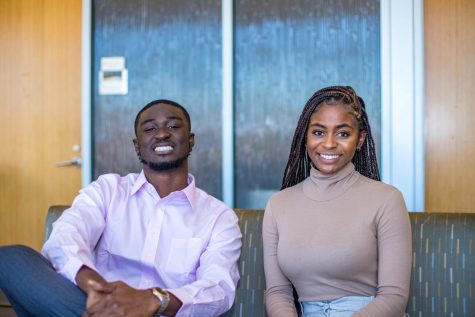
“I think that any time you want to grow somewhere, you have to be in that environment,” Franklin said regarding more opportunities and experiences that may not be what you initially want. “You can’t grow if you’re not there. So there’s no opposition, although it may be a lot of work, it gives me that opportunity to grow and just develop more. So by the time I get where I need to be full time, I’ll be ready to go.”
Thanks to the Director of Career Services, Sabrina Crowder, Franklin and Zanders are able to expand and broaden their talents and horizons. She emphasizes the importance of career opportunities for her students.
“The vision of this program is to allow the university the opportunity to have its most talented students to be hired in co-op employment positions by some of Alabama’s premier employers, which helps the students gain important career contacts,” Crowder said. “The HBCU Co-Op Program is a three-way partnership between Alabama State University, the Governor’s Office of Minority Affairs, and employers in both the public and private sectors.”
For students who have a 3.0 GPA or better, Crowder sends out several career opportunities to their university emails and this HBCU Co-Op Program is just one of many students can apply for if they meet the requirements.
“The Alabama HBCU Co-Op Program is good for ASU and HBCU students alike because it provides hands-on work experience in the public and private sector for all eligible minority students of all majors,” she said. “The program is a public-private collective that addresses the underrepresentation of minorities in key roles in certain industries including, but not limited to, science, technology, engineering and mathematics.”
While Zanders is only a sophomore and her internship ends before spring break, she is dedicated to ensuring that her future steps are in motion, hoping to either stick to finance or branch off and pursue a Juris doctorate.
As for Franklin, those steps have already come to fruition, allotting him the opportunity to remain in Alabama for his career.
“I will begin work after I graduate with Wells Fargo, with training in North Carolina and then moving to my full-time job in Birmingham, Alabama,” he said. “Getting any good job is tough, but it’s especially tough for people of color. Because of Alabama State University allowing me to participate in this important co-op program, I will be getting the type of employment experience that will help me sharpen my corporate skills and allow me to be a success in corporate America.”
To current and future Hornets, freshman, senior or in-between looking for internships, Zanders believes that “you miss 100% of the shots that you don’t take” and that every work experience is valuable regardless of the relevancy.
“Just go for it,” she said. “You can learn anything from any situation. So, you know, even if you think you might not be the right fit or the job might not be the right one for you, you can still get something from it.”
Hearing the word “no,” resonates with Franklin the most. He advises his fellow Hornets to maintain that hunger and drive to keep applying for internships amid the global recognition of Black employers and their relevance.
“If you’re a student, you need to realize that everything is kind of at your will, especially right now, given the trend of HBCUs and how much people really want them and how attractive they are. This isn’t going to last forever. This is just really popular because of George Floyd. So with that in mind, I just think that applying to every opportunity available, being hungry, understanding that being humble and you really don’t know anything, I think is the main key. And just to continue to apply and continue to hear the word “no” until you get the word “yes.” So it’s really about you and how much you want to work for it.”


